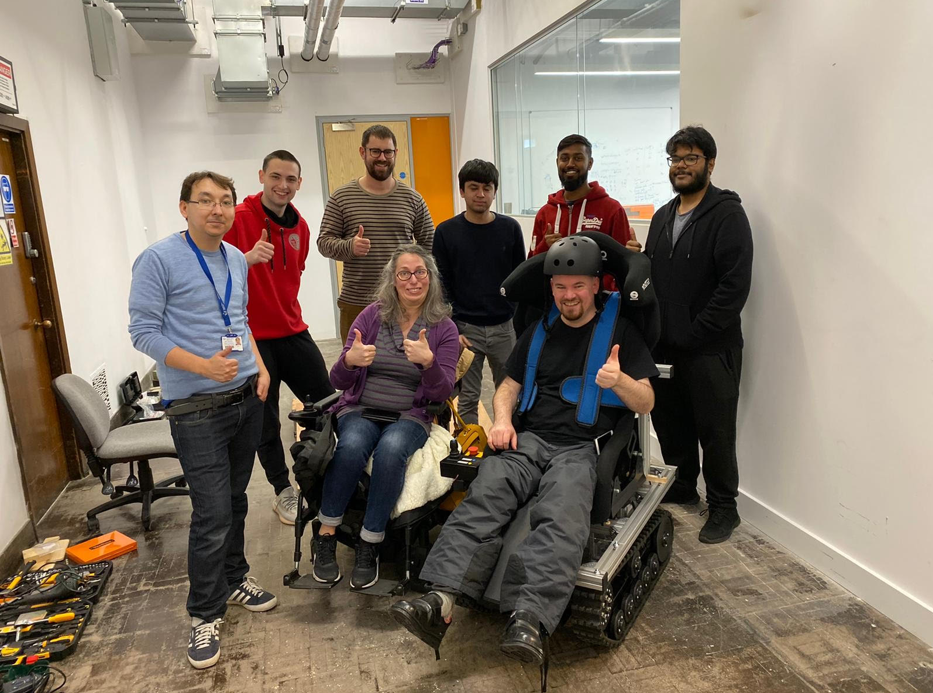From end-users to co-designers: exploring the use of assistive technology amongst wheelchair users
Ildar Farkhatdinov, Lecturer in Robotics from the Centre for Advanced Robotics, and Stuart Miller, Lecturer in Biomechanics from the Sports and Exercise Medicine Centre tell us the story of their Large Grant project engaging with the wheelchair community.

We all know how important technology can be in our lives but for those who use assistive technologies, having access to the right technology can be fundamental in enabling them to live healthy, productive, and independent lives. Whilst research in this area is vast, we sometimes see a disconnect with what's happening in the lab and the real practical realities of what those who use assistive technologies want and need for their day-to-day life: seeing people as 'end-users' rather than 'co-designers'.
It's this desire to understand the lived experiences of those with physical disabilities and create useful technological solutions, that underpins the public engagement work that Ildar and Stuart are involved in through their Centre for Public Engagement 'Large Grant'.
The project originally set out to bring together collaborative team of staff, students, and wheelchair users to design a robotic wheelchair that they'd take to Cybathlon 2020. They hoped that not only would they be able to co-create a wheelchair that would be highly competitive-- but also was practical for use by those in the wheelchair community.
Unfortunately like many plans of 2020, the pandemic waylaid this activity and took the international competition off the table. But before COVID, the team had successfully met on several ocassions to have discussions about what a robotic wheelchair could and should be; and it became clear that there were many avenues where assistive technologies could potentially help address challenges that those with physical disabilities experience.
It is these discussions which underpin the adapted approach of the project. Now the team are working to understand the daily life challenges of the wheelchair users through running interviews, online surveys and focus groups. In particular, they're exploring the potential for technology co-design to address challenges caused by physical disabilities and want to work collaboratively throughout: having the wheelchair community as co-designers and end-users of the developed solutions.
The team then plan to use these discussions to shape their future areas of research in the field of assistive technologies: making sure that the wheelchair community are involved in the technology right from the start. Additionally they'll be exploring creating a new engaged teaching approach to assitive techologies: having students develop technologies based on real-world scenarios, again being able to work alongside the wheelchair community throughout the development process.
If you are a wheelchair user and would like to be involved in the project by participating in the interviews, surveys, or focus groups, you can get in touch with Richard Amm (r.amm@qmul.ac.uk) or Terence Egbelo (t.egbelo@se20.qmul.ac.uk) who are supporting the project. Richard is a research assistant from the School of Electronic Engerineering and Computer Science, who is himself a wheelchair user and disability rights campaigner. Richard provides important links and insights to local disability community. Terence, a QMUL Data Science student will support the interviewing and surveying tasks of the project, as well as the data analysis.